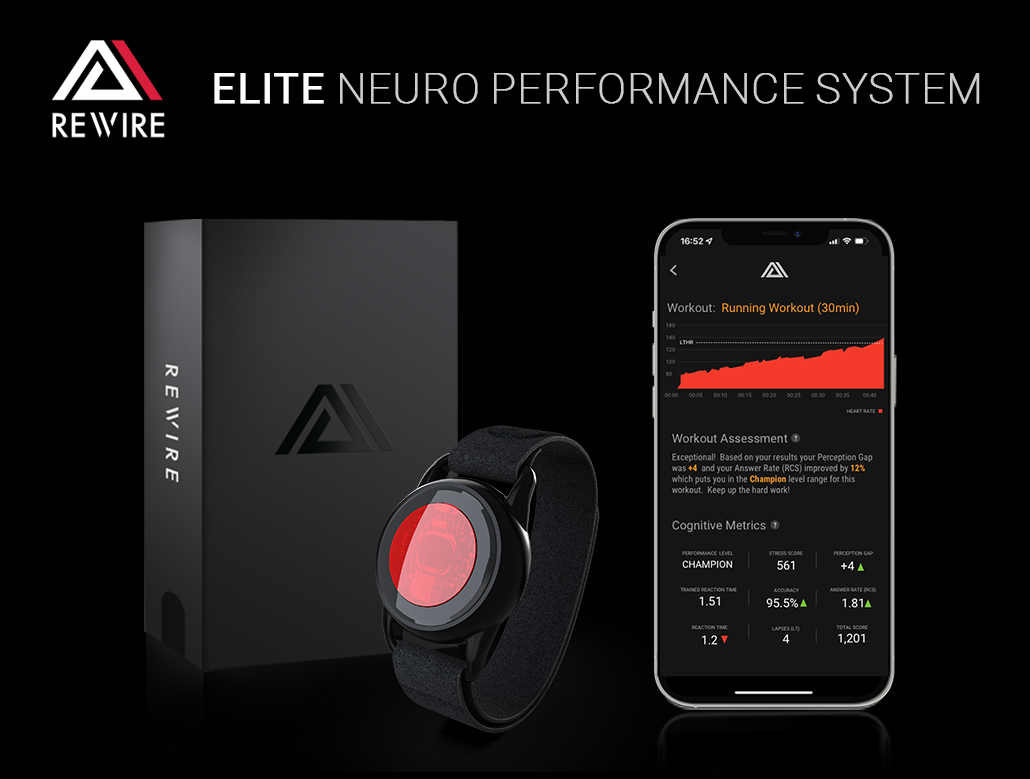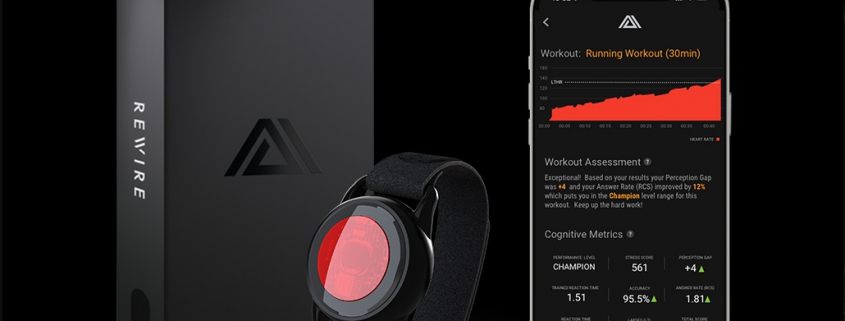Overview of Rewire’s Neuro-Training System
What is Neuro-Training?
Neuro-Training is cognitive training that involves mentally fatiguing activities to induce mental fatigue to help augment training stimulus and build more resilience. The traditional way of building mental resilience and grit is to push your body very hard during training, hoping for a side effect that translates to more resilience. The problem is that while this works initially it has diminishing returns over time and can lead to burnout and injury as you will need to continually push yourself harder and harder to realize some form of benefit. Neuro-training is a direct path to mental resilience and targets the specific area of the brain responsible for goal driven behavior, sustained attention and the perception of effort. Neuro-training allows to you to layer on additional cognitive load without the negative consequences or risk of injury from over training. Learn More
How it Works
The Rewire system allows you to perform neuro-training before, during and after workouts using the built-in cognitive training system in the Rewire app in combination with the patented Neuro-Training hardware (only needed for brain training while working out). The most common response inhibition test is called the Stroop test where the subject tries to match the ink color (large word) with the matching word meaning (small word).
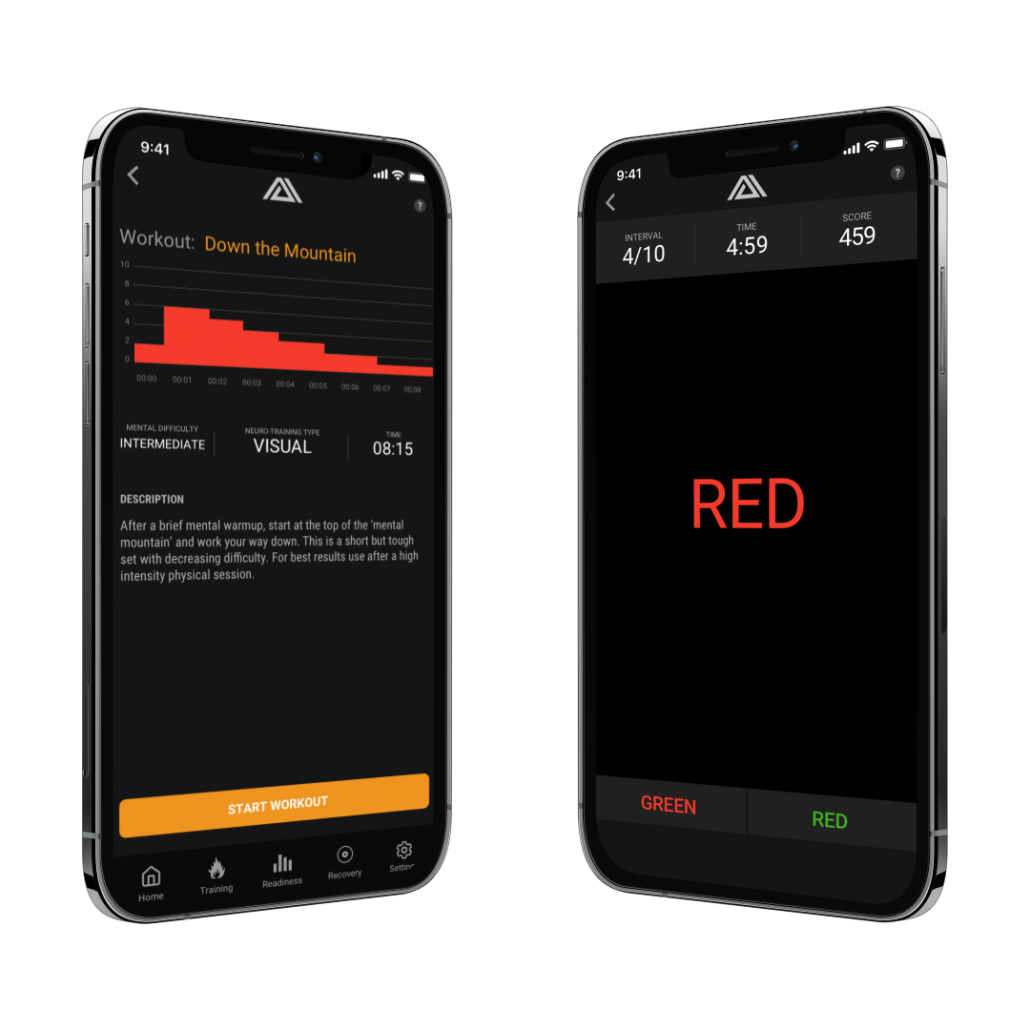
How Does the Neuro-Training Hardware Work?
The neuro-training hardware consists of patented ergonomically designed buttons and straps that allow you to perform audio and visual based brain training tasks while working out. This first-to-market innovation enables a brand new way to train both the mind and body at the same time.
Running Example
Cycling Example (For Indoor Use Only)
Features of the Neuro Performance System
- Neuro-Training hardware consisting of ergonomically designed buttons and straps, wireless Bluetooth technology with rechargeable batteries
- Library of neuro-training workouts that can be done before, during and after workouts
- Connects with standard power meters and heart rate monitors to track physical performance
- Audio and visual-Based neuro-training
- Voice controls (audio only neuro-training)
- Comprehensive training analytics for cognitive and physical analysis over time
- Custom workout builder for creating workouts for a variety of different sports including:
- Cycling (indoor use only)
- Duathlon
- Functional Fitness
- Flexibility Training
- Powerlifting
- Running
- Triathlon
- Walking
- Weightlifting
- Yoga
- And More
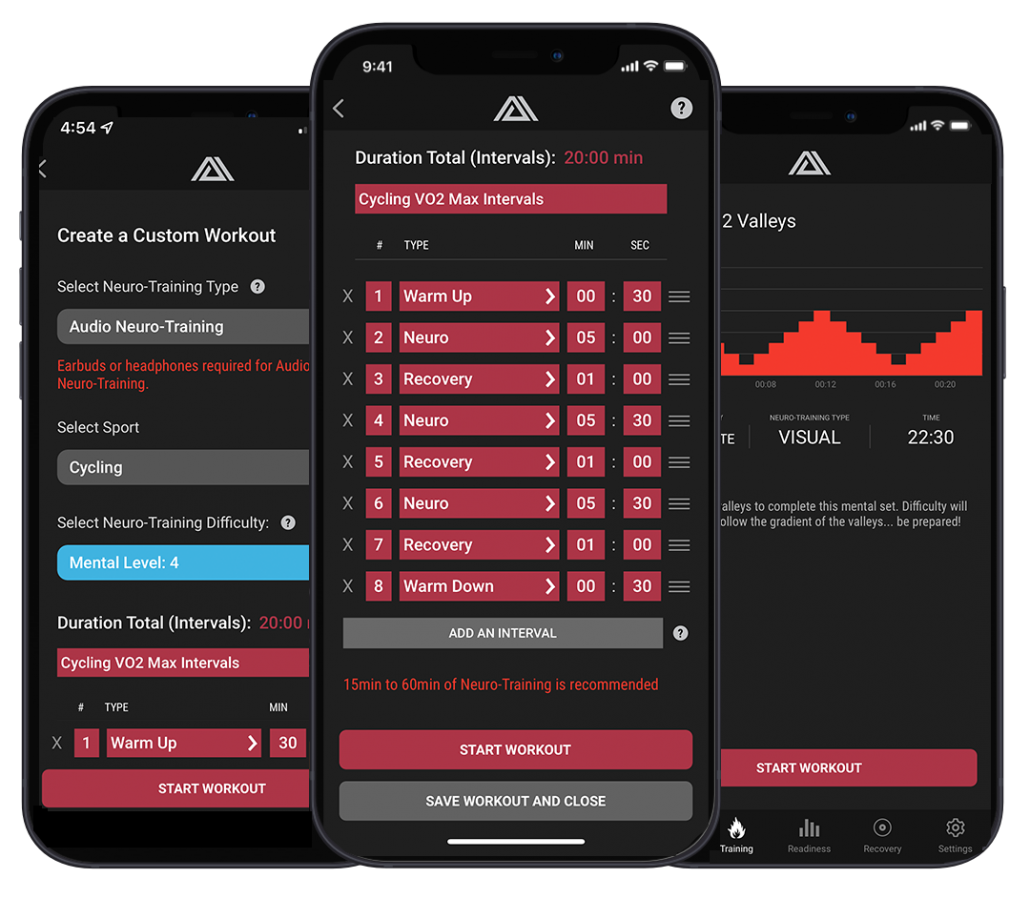
What is the Science Behind Neuro-Training?
The science of brain endurance training (BET) was first established in 2009 and has been validated across a variety of different sports. As validated in the lab and numerous peer reviewed studies, BET works by targeting the anterior cingluate cortex (ACC) with a specific type of cognitive task called response inhibition i.e. impulse control tasks.
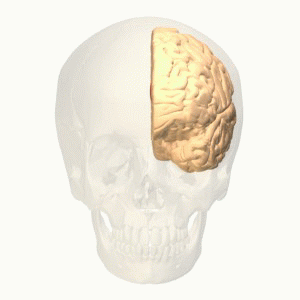
Many studies attribute specific functions such as error detection, anticipation of tasks, attention, motivation, and modulation of emotional responses to the ACC. In the landmark study in 2009 and subsequent studies, scientist proved that the ACC is also responsible for managing the perception of effort which has been shown to be a limiter to athletic performance when this part of the brain is fatigued during challenging physical and mental efforts.
These response inhibitory tasks such as Stroop task, go/no-go and others add more cognitive load to the brain creating an adaptation overtime that translates to a greater level mental resilience translating to improved physical performance when an athlete is under mental and physical stress
What Athletes & Coaches Are Saying
“As a professional athlete, I’ve known firsthand the importance of training the mind and body to push the limits of performance. Rewire’s latest platform makes mental strength training more accessible to athletes everywhere with easy-to-use tools to help them reach their goals.”
Kyle Korver NBA All-Star & Director of Player Affairs and Development for the Atlanta Hawks
“I have been using the app for a few months. It has helped me set the proper mindset before workouts, disconnect before bedtime, and gauge my mental readiness on a daily basis. I have also been enjoying working on the Neuro-Training component during some of my indoor rides.”
Matt Hanson Professional Triathlete and Coach
“With the app it’s giving you a controlled environment and structure so that you can choose when you want to to add mental training to your workouts and you can do it as often as you’d like.“
Laura Kline Elite Ultra Runner & Endurance Athlete
“Mental health and strength is so super powerful, but despite that, athletes rarely train it. With Rewire Fitness there is a new platform where it’s accessible and easy to train.”
Marc Anthony Klok Professional Footballer | Liga 1 club Persib Bandung and the Indonesia national team
Neuro-Training Sports Examples
These examples are to give some idea of how one may fit neuro-training into fairly standard weekly plans and periodisation models for the given example scenario. These are not exhaustive but aim to put some paradigm and context to the above information.
Endurance Athlete
- More neuro-training in base building, off-season and pre-season phases and less in-season.
- Try to avoid neuro-training before key workouts and races.
- Good times for neuro-training: during or around easy volume (60-90mins Zone 2 of a 5-zone model for instance).
Team Sport Athlete
- More neuro-training in base building, off-season and pre-season phases and less in-season.
- Try to avoid neuro-training before skill training and game days.
- Good times for neuro-training: Conditioning days, easy lifting days, rest days.
Strength Sport Athlete
- More neuro-training in base building, off-season and pre-season phases and less in-season.
- Try to avoid neuro-training before technically challenging days, key sessions and competition days.
- Good times for neuro-training: Conditioning days, easy lifting days, rest days.
Ready to Change the Way You Train?
Level-up your mental and physical performance by ordering Rewire’s Neuro Performance System today (available while supplies last).
